The story of canned goods over the past year is more the stuff of a Hollywood screenplay than the tale of a category long branded as lacking any interest or flair.
First we had the high-profile introduction of Branston beans into brand leader Heinz's territory, which sparked a war of words between the two companies about whose beans taste best. Then we had intrigue over the future of canned fish brand John West, which was sold to Lehman Brothers in March, and the HP brand, purchased by Heinz from Danone earlier this year.
This was followed by speculation about one of the category's most famous protagonists - Campbell's Condensed soup - after it was axed by Sainsbury's in May. The brand's future is still in doubt following Premier Foods' purchase of Campbell Soup Company's UK and Irish businesses.
Premier will get a two-year licence to make and market Campbell's soup in the UK, but then the licence will be repatriated to Campbell in the US.
Such movement and rationalisation have been attributed to inflationary pressures that have prompted manufacturers to rethink their strategies and cut their losses wherever possible.
Numis Securities food industry analyst Andrew Saunders says: "Canned goods hasn't had a huge investment and has had to withstand a lot of competition from the chilled category over the past ten years, which has led to a shake-out in the industry. Shareholders are demanding better performance and companies are forced to do some soul searching and identify which areas are fast moving in their portfolio and which ones aren't."
The tough economic conditions have also resulted in price increases virtually across the board, despite the fact that the sector is generally characterised by high levels of promotional activity. Baked bean prices are set to rise from 44p to 47p in most retailers and other products are likely to follow.
The onslaught of fresh rivals - in particular soup and pasta - and improved own-label recipes have also combined to conspire against canned goods.
Saunders confirms: "New Covent Garden-type soups are an innovation and have brought new consumers into the market, adding growth to soup sales. Heinz pasta and spaghetti have had to battle it out with chilled competitors, which are favoured by retailers due to their higher margins.
"Chilled ready meals are also more competitively priced now."
Premier Foods' launch of Branston Beans served to inject an element of drama into the category and generated an unprecedented degree of consumer interest. "This was a very strong launch and it did put more impetus into the baked bean category - which has been dominated by Heinz for too long," says Saunders. "It brought genuine innovation by focusing on what was inside the tin rather than just the brand and image. The taste of the product is behind its success."
Saunders emphasises the key role taste has to play in an environment where the quality of own label is steadily increasing. "Own label is starting to emulate the quality of brands. If the taste comparison is that close, why should consumers spend more on a brand? Brands have to work harder to maintain visibility and taste. Branston Beans is a good example of this. Brands themselves are not enough to keep products on shelf any more."
Market conditions have also forced manufacturers to invest in premium products, although not always with success, as consumers struggle to adjust to premium lines in canned foods. Heinz, for example, has had difficulty garnering support for its premium Specials and Big Chunky soups, while John West's reserve red salmon and tuna steaks have failed to inspire consumers, according to some retailers.
Shaun Quinton, MBL trading manager for staple goods, says: "John West's reserve red salmon and tuna steaks are very top-end of the canned fish market, but they will never shift in the same quantities as the staples because consumers can't get their heads around delicacies in canned food - it's just not the nature of the market."
Overall, the canned goods market is static, with growth up just 0.5% to £1.7bn, according to TNS [52 w/e 18 June 2006]. However, there are pockets of growth, including baked beans, soup and fish, up in value 3.6%, 2.4% and 1.6% respectively.
Health, premium products and convenience are recurring themes. Waitrose buyer for canned vegetables and fruit James Hodgson says demand for canned pulses has accelerated, because they are inherently healthy and have a high nutritional value.
Premier Foods general manager Martin Hall confirms that, following a drop in volume last year, the canned vegetables market is now growing by 4.2%.
He says Premier Foods' share of the canned vegetables market grew from 8.9% to 9.7%, driven by chickpeas and lentils.
Sweetcorn is also performing well with value sales increasing by 9.9% year-on-year, according to General Mills UK, owner of the Green Giant brand. Sales director Andy Foweather says: "Much of this success can be attributed to extensive marketing support, which keeps the brand relevant to today's health-conscious consumers and ensures awareness levels are maintained."
There is still room for growth, as long as manufacturers tailor products to trends. The bigger issues are persuading consumers to opt for canned in favour of perceived fresher, healthier alternatives, as well as improving canned aisles in stores. The canned market is also likely to come under increasing threat from convenient packaging innovations in other areas of the market.
And the story may not have a happy ending quite yet. Says Saunders: "There will be more rationalisation in the sector - it's part and parcel of the way the industry works. Brand owners need to be more innovative and produce the high-quality products that consumers are demanding." n










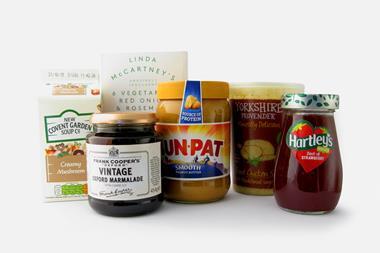

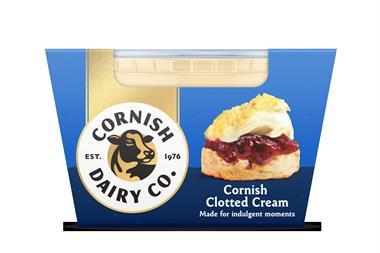
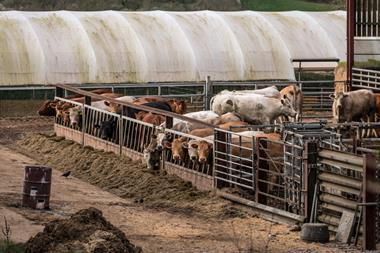
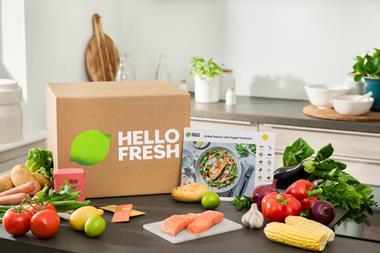
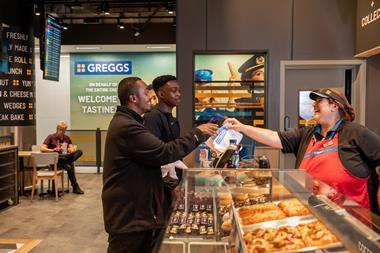

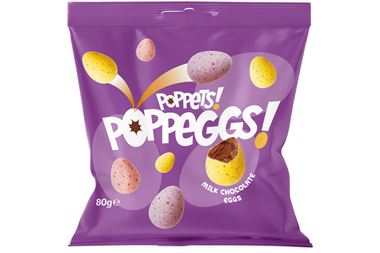
No comments yet